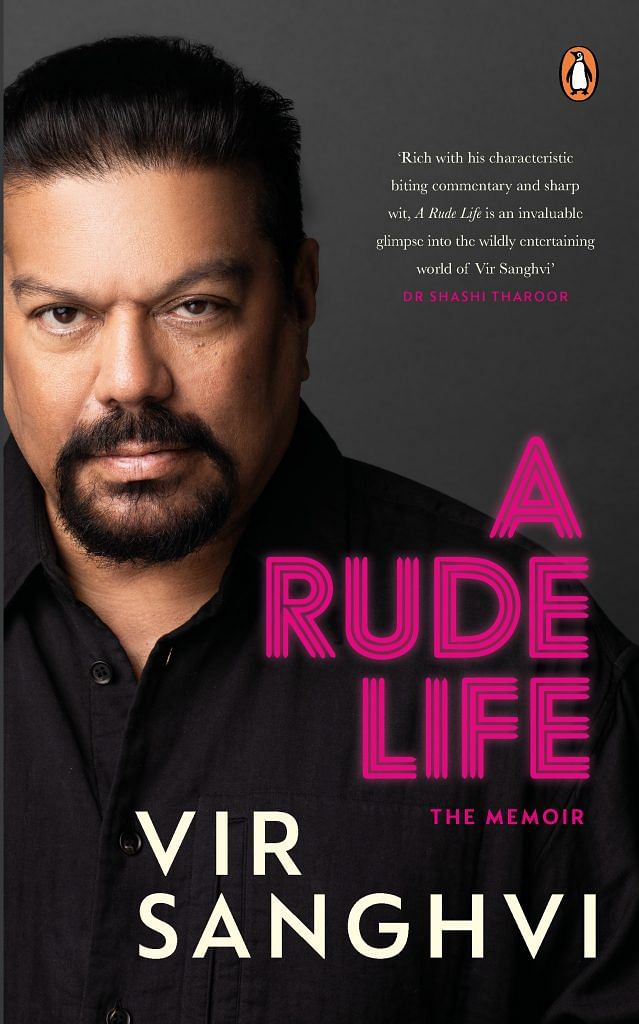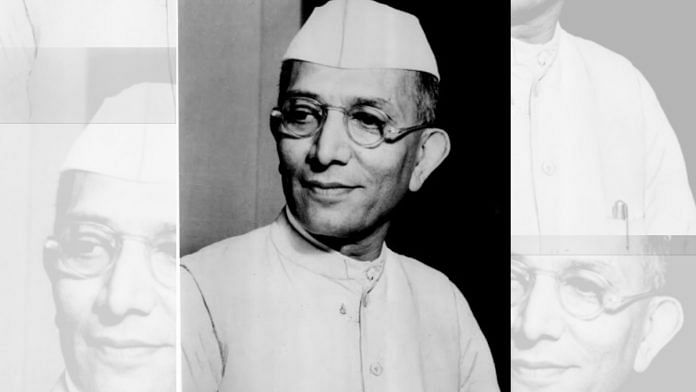I had been to see him twice in the Bombay magazine days to get him to talk about his life. He had told candid stories (too candid; at one stage, he showed me the shingles on his scalp) about his time in Delhi with many scurrilous fantasies that even predated the Internet madness to come suggesting that, in this one respect alone, Morarji was ahead of his time.
But once you tried to get him on the record, he shut up and resumed his renowned stiff posture, his facial features set in a grim position that suggested a sanyasi who was suffering for the nation.
What none of us realized was that the sanyasi had gathered up every secret file he could get his hands on at the PMO before they booted him out. He had a treasure trove of confidential communications, government files and secret letters, all kept safely, perhaps in those Air India attaché cases.
He summoned Arun Gandhi one day in 1982 and showed him the files. He wanted Arun to write a book about Morarji’s time as prime minister. The documentation was all there. Morarji would explain what was in the files to him and Arun would write the book.
In fact, Morarji had the theme of the book ready. A decent, honourable Gandhian called Morarji goes to Delhi to do his duty as prime minister. He is thwarted in this desire by such demons as Charan Singh and Indira Gandhi. Evil overpowers good. Our hero loses. But his has been a battle for the truth.
Also Read: Morarji Desai saw this letter from Indira Gandhi as a brazen attack on his self-respect and resigned
As a story, it would have made a very poor Amar Chitra Katha comic book. There was clearly no real book there. But Arun was sharp enough to know that no journalist had ever seen so many secret prime ministerial papers before. He agreed to do the book.
After that, it was vintage Morarji. He would not go on the record. Not a single document could be quoted. (These were all serious violations of the Official Secrets Act anyway.) Arun would have to tell Morarji’s story from the perspective of an all-seeing narrator who knows everything but will not let you see the evidence.
Arun was a nice man so he went along with this. He even chose a title, along with Morarji, that reflected our hero’s view of himself. The book was to be called ‘Morarji Betrayed’.
Each day Arun would come to the office with some secret file or the other and I would eagerly go through it. Some of it was sensational. There was a letter from Ram Jethmalani to Morarji saying that ‘Charan Singh has lost his mental balance’. It was interesting because it provided an insight into the battles within the government. It is unusual for an MP to write to the prime minister to complain that the deputy prime minister is a lunatic. But it was topical, too, because even as Arun was researching the book Jethmalani went off to join Charan Singh. So was Charan Singh a nut case or was he Jethmalani’s leader? Or both?
There was extensive correspondence between the prime minister and the president. Apparently, Kanti, Morarji’s son, had asked for the Hinduja brothers to be invited to a Rashtrapati Bhavan banquet.
The president believed that the Hindujas were not the sort of people who should be allowed into Rashtrapati Bhavan. Morarji defended his son but not (as far as I can remember) the Hindujas, saying that this was a minor matter.
When Janata had been in office we had speculated that there was tension between the prime minister and the president. Now, here I was, with the original letters in my hands.
Also Read: Indira Gandhi vs Morarji Desai: How JNU was at the centre of battle to capture academia
There was more. I had always believed that, at some stage, the USSR decided to bring the Janata government down. Morarji hated communists (as I knew from my family’s experience) and was consistently rude to the Russians to their faces.
At one of our meetings during the Bombay magazine days, he had proudly told me the story of how India had either arrested Russian spies or thrown out Russian diplomats (I can no longer remember which one it was) when the Russian leader Alexei Kosygin was due to visit.
Kosygin had complained to Morarji that this had been done, and the story promptly leaked to the press, solely to embarrass him and ruin the visit.
Morarji proudly related his response to me. ‘Look here,’ I told him. ‘In your country, you control what appears in your papers. In my country, we have a free press. I can’t control what they write!’
According to Morarji, Kosygin was dumbstruck by the sharpness of the response.
For years and years, and especially during Indira Gandhi’s time, India had been considered almost a part of the Soviet sphere of influence (even if it was non-aligned). Under Morarji that began changing. If the prime minister loathes the Soviets then how long can any understanding last?
I had always wondered about the timing of the revolt that brought down Morarji and the Janata government. It had started with Charan Singh’s revolt which was regarded as no great threat because Charan Singh was not popular with his colleagues.
Moreover, his ends were not ideological but personal: he wanted to be prime minister himself. And the only way he could do that was if Indira Gandhi backed him.
Given that the Janata Party had been created to oppose Indira Gandhi, it was thought unlikely that Charan Singh would ask her for support. When it became clear Singh’s ambition vastly exceeded his scruples, his colleagues said that they were all shocked that Charan Singh would ask the woman who had jailed him to now assist him in his quest to become prime minister. But then, a strange thing happened: many politicians considered close to Moscow or hostile to Washington suddenly joined the revolt. This included those who had previously attacked Charan Singh and those who were bitterly opposed to Indira Gandhi.
Also Read: Morarji Desai, the prime minister for whom time in PMO was ‘tougher than prison’
Was this all spontaneous? How could so many politicians suddenly change their minds and back Charan Singh? Was I being paranoid or did the facts fit my theory that the Russians had worked to bring Morarji down? That they had used their agents of influence within the political system to wreck the Janata government?
Among the papers Morarji had stolen from the PMO was a handwritten letter from Nani Palkhivala who was India’s ambassador to the US when Morarji was PM.
I don’t remember the exact words so I will summarize what I do remember. Palkhivala began by saying that he was writing this letter by hand and sending it personally to Morarji by diplomatic bag because he did not want anyone else seeing it.
He had just been visited by a high official of the US government who had told him that US Intelligence had learned that the Soviets had taken a decision to topple Morarji’s government. All their assets in India would be used to bring Morarji down.
For me, this was as close to a smoking gun as I had seen. Morarji’s government had been relatively stable when Palkhivala had sent the note. And then, shortly afterwards, the upheavals had begun and the collapse had been startlingly quick.

This excerpt from ‘A Rude Life’ by Vir Sanghvi has been published with permission from Penguin Random House.



